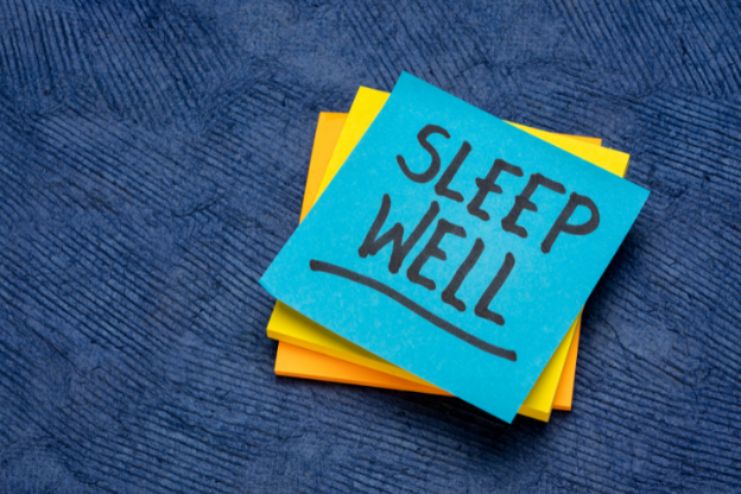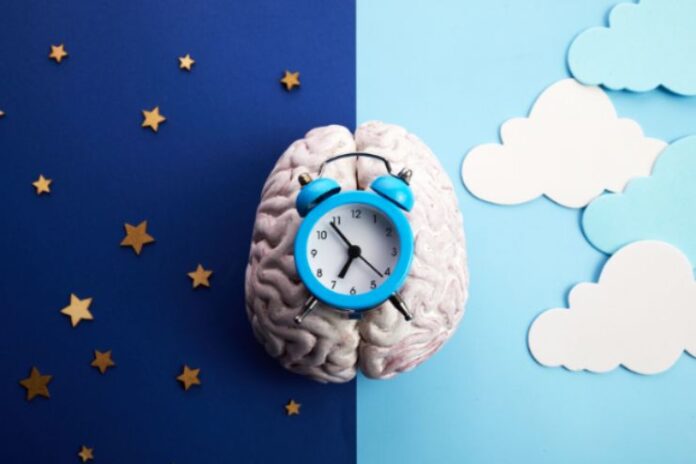Affiliate Disclaimer
Some links in this article are affiliate links. We may earn a small commission if you make a purchase through these links, at no extra cost to you. We only recommend products we find useful to our readersImagine waking up feeling refreshed, staying energized all day, and falling asleep effortlessly at night. That’s the magic of a well-regulated circadian rhythm.
The circadian rhythm is your body’s internal clock, which helps regulate sleep and maintain energy and focus. However, certain habits, such as sleeping late in the night, excessive digital consumption until the wee hours, and irregular sleep cycles, can cause this rhythm to go out of balance. The result? Fatigue, brain fog, and restless nights.
The good news is that resetting your body clock isn’t complicated. With a few simple adjustments, you can restore your natural sleep-wake cycle and feel your best again.
In this article, we will understand how the circadian rhythm affects our overall health, including energy, focus, and sleep. We will also share a step-by-step guide on how to reset the circadian rhythm.
Read More: Why You Keep Waking Up at 3 A.M and How To Fix It
What Is the Circadian Rhythm and Why Does It Matter?

Your circadian rhythm is your body’s internal clock that regulates your sleep-wake cycle, energy levels, and even digestion. Major factors affecting circadian rhythm are cues like light, meal timing, and activity levels. If this rhythm is off, you may struggle with poor sleep, tiredness, lack of focus, or mood swings.
Read More: Impacts On Glucose In Circadian Clocks And Obesity Enhance Cardiovascular Risks
How a Disrupted Circadian Rhythm Affects You
An irregular sleep and wake-up cycle can impact not just your sleep but have more profound, long-lasting effects:
- Sleep Issues:A disturbed circadian rhythm impacts melatonin production, making it harder to fall asleep and maintain sleep. Waking up early leads to unrest throughout the day due to poor sleep quality.
- Low Energy: An irregular circadian rhythm produces excessive cortisol, which disturbs natural energy levels. You feel constantly tired and low on energy throughout the day, making it hard to stay alert and motivated.
- Brain Fog: Poor sleep from a misaligned circadian rhythm impacts cognitive functions like memory and focus. You might face issues such as difficulty concentrating, remembering things, and mental clarity, leading to reduced productivity.
- Mood Changes: Disrupted sleep affects stress and mood-regulating hormones like cortisol and serotonin. Cortisol leads to increased stress, anxiety, and irritability, making it challenging to regulate your emotions.
- Digestive Problems: Circadian rhythm impacts digestion, appetite, and gut motility. Due to an irregular circadian rhythm, you might experience irregular hunger cues, bloating, and digestive discomfort.
Read More: How Hormones Impact Your Sleep Cycle at Every Age
Common Signs That Your Body Clock Is Out of Sync

A few common signs that your circadian rhythm is out of sync include:
- Sleep Issues:You might struggle with sleep issues that cause you to sleep late and wake up earlier than you desire.
- Daytime Drowsiness:Feeling drowsy during the day can make you lethargic throughout the day and is a significant indicator of irregular circadian rhythm.
- Digestive Problems:If you start experiencing irregular bowel movements or appetite fluctuations, it might be a sign that your body’s internal clock is out of sync.
- Mood Instability: Heightened irritability, anxiety, or depressive symptoms.
Recognizing these signs is the first step toward restoring balance to your internal clock.
Read More: Avoid the Midday Slump with Energy-Boosting Snacks.
How The Circadian Rhythm Works

The circadian rhythm is a 24-hour internal clock regulated by the brain’s suprachiasmatic nucleus (SCN), which responds to environmental cues, particularly light and darkness. In the morning or during the day, exposure to natural light signals the SCN to limit melatonin, promoting alertness. As evening approaches, dim light leads to high melatonin production, signaling that it’s time to sleep.
Factors Influencing The Internal Clock
Understanding the factors affecting your internal clock is the first step toward addressing the issue of irregular circadian rhythm.
- Light Exposure: Exposure to light, artificial or natural, affects melatonin production and disrupts the sleep-wake cycle. Ample natural light exposure helps align the circadian rhythm, while artificial light can disturb it.
- Meal Timing: Inconsistent meal timings every day can impact the body’s metabolism and sleep-wake cycle, which in turn affects the circadian rhythm.
- Lifestyle Habits: Late-night screen use, inconsistent sleep patterns, and lack of physical activity can easily throw off the body’s natural clock. Modern lifestyle factors, such as shift work and irregular schedules, often contribute to this misalignment.
Read More: 8 Smart Home Devices to Enhance Your Sleep
Step-by-Step Guide to Reset Your Circadian Rhythm

If you feel that it is time to take control of your circadian rhythm, here are a few easy steps to make that happen:
Morning:
- Seek Natural Sunlight: Exposing yourself to natural daylight not only gives the required dose of vitamin D but also helps regulate the internal clock. Make sure to do this within 30 minutes of waking up.
- Consume A Protein-Rich Breakfast: Prioritize a protein-rich diet, especially during breakfast. This helps boost wakefulness and energy, setting the tone for the day.
- Engage In Morning Exercise: Engaging in exercise or physical activity in the morning improves alertness and helps you sleep better with healthy sleep patterns.
Afternoon:
- Limit Caffeine Intake: Caffeine can interfere with your sleep cycle. While morning coffee can boost your energy, avoid caffeine after lunch. This makes you less likely to experience sleep troubles at night.
- Incorporate Stress-Relief Practices: Engage in mindfulness or take short breaks to manage stress and maintain focus.
Evening:
- Reduce Blue Light Exposure: Reduce screen time 1-2 hours before bed to allow melatonin production to kick in.
- Maintain A Consistent Sleep Schedule: Make a sleep schedule and stick to it. Try to go to bed and wake up at the same time each day, even on weekends, to stabilize your sleep-wake cycle.
- Time Your Dinner Appropriately: Ensure that you finish eating 2-3 hours before bedtime to avoid metabolic disturbances while sleeping.
Night:
- Optimize Your Sleep Environment: The sleep environment plays an important role in getting good quality, undisturbed sleep. Ensure your bedroom is dark, cool, and free from electronics.
- Practice Relaxation Techniques: Mindful techniques such as deep breathing or meditation can help your body sleep better.
- Avoid Late-Night Eating and Alcohol: Avoid late-night binge eating. Stay away from food and alcohol near bedtime, as they can interfere with your sleep quality and ability as well.
Read More: Combat Digital Eye Strain: 7 Blue Light Blocking Glasses for Screen Time Relief
The Role of Melatonin and Sleep Supplements
Melatonin supplements can help reset the circadian rhythm in the short term, especially for jet lag or shift work disruptions. Other natural alternatives include magnesium, valerian root, and chamomile. These also help by promoting relaxation and improving sleep.
However, long-term reliance on these sleep supplements is not recommended due to their potential side effects.
Maintaining a Healthy Circadian Rhythm Long-Term

Resetting the circadian rhythm for a day doesn’t help. This must be for the long term, as only then does it promote well-being. Here are a few ways to maintain a healthy circadian rhythm:
- Stick To A Regular Schedule: Follow a strict sleep schedule and wake-up times. This will help reinforce the body’s natural rhythm, making it easier to fall asleep and wake up.
- Adapt To Travel And Shift Work: The sleep cycle can be impacted by travel and other significant changes. Learn to slowly adjust your sleep schedule before these important changes to reduce disturbances.
- Supportive Lifestyle Choices: A balanced diet, regular physical activity, and stress management all contribute to maintaining a stable circadian rhythm in the long term.
Final Thoughts: The Benefits of a Reset Circadian Rhythm
Resetting your circadian rhythm impacts your overall health and well-being significantly. Here is how:
Improved Energy Levels: When your circadian rhythm is aligned, it promotes increased energy production, prevents midday slumps, and promotes focus throughout the day. You feel less tired and have increased stamina while enabling better performance in both physical and mental tasks.
Improved Sleep Quality: A circadian rhythm that is in sync promotes the effective release of melatonin in the evening. This allows you to fall asleep faster and spend more time in deep, restorative sleep stages. You will wake up feeling truly refreshed without the usual grogginess or fatigue that comes with irregular sleep cycles.
Sharper Mental Focus: Proper circadian rhythm in sync helps focus better and gives mental clarity by ensuring consistent and restorative sleep, crucial for memory consolidation and cognitive function. This results in improved focus, faster decision-making, and better productivity throughout the day.
All these benefits make us inclined towards resetting our circadian rhythm. These step-by-step tips make it easier for everyone to have a better sleep-wake cycle.
Remember, resetting your circadian rhythm isn’t just about better sleep. It’s about improving your overall health and well-being.
In this Article

















